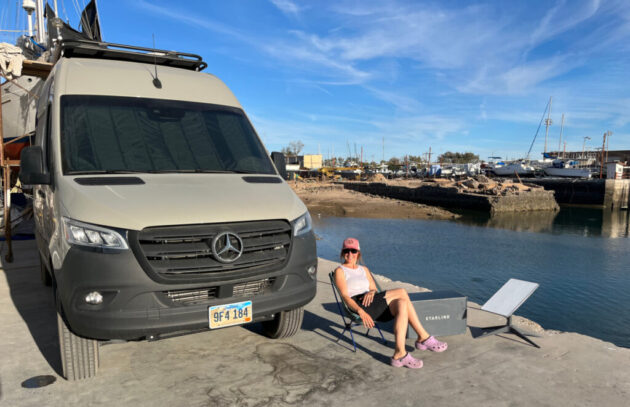
3 days is the amount of time our shopping malls, marts, and superstores can survive if all trucks in the U.S. were to stop making day-to-day deliveries. Let that sink in. Everything around us, our lifestyles, luxuries, and even basic necessities will vanish in less than half a week if all truckers decided to call it quits.
Such a vulnerable existence, right? Well, that is the nature of the modern world. Goods from every nook, corner, and port of the country rely on truck transport to make it to our door steps. And this is not an exaggeration, American truckers transport well over 72 percent of all freight, calculated by weight, in the continental U.S.

Source: toistudent.timesofindia.indiatimes.com
This is probably why trucking is such an important and widespread profession in the country. The U.S trucking industry is huge, comprising over 4 Million semi-trucks alone. All in all, the industry racks in an astonishing 875.5 Billion U.S. Dollars every year. And if current rates of growth hold the industry will end up bringing in almost a Trillion Dollars in a few years.
Almost a Million people in the U.S. directly depend on the trucking industry for their livelihood. And if you look at the statistics mentioned in the first passage you’ll realize that each one of us relies on the trucking industry for our livelihoods, making it the backbone of the economy.
And it’s not just truckers, heavy-vehicle ownership is constantly on the rise all around. Thousands of Americans are choosing to give up on home ownership and are choosing to live in mobile homes and trailer parks. And it’s not just a matter of not being able to afford a home, though that is a huge factor, mobile homes offer a certain degree of flexible living that traditional homes cannot hope to attain.

Source: rvlove.com
Similarly, Recreational Vehicle (RV) ownership is also on the rise. According to recent figures, the U.S RV industry has grown exponentially and now amounts to a whopping 140 Billion Dollars. A study conducted in 2021 revealed that almost 31 percent of all RVs had first-time owners. Even people, like me, with no knowledge of statistics, agree that 31 percent is a huge boom.
The reasons are, again, similar. RV tourism is flexible. You can choose to drive to the farthest corner of the country and still get to sleep in a heated room on a bed and take a warm shower in the morning. Moreover, traveling around in RVs is also much cheaper when compared to booking hotel rooms.
In short, RVs offer inexpensive tourism on the go, who would not like to try that at least once. And interestingly, 1.5 percent of all RV owners state that they live in their vehicle full-time, another form of mobile living.
Most of these heavy vehicles come with in-built amenities like beds, washrooms, refrigerators, running water, and much more. But since this is the 21st century these basic amenities are not the only ones we need to survive. Modern times require that we remain connected to the outside world through the internet at all times.
And here in lies the issue, you cannot get a fast-paced fiber internet connection installed on a moving vehicle. It even sounds counterintuitive.
Luckily, we live in a very advanced society and have figured out futuristic solutions to almost any problem the mind can think of. Satellite-based internet service providers (ISPs) like HughesNet Internet beam fast-paced broadband internet all across the United States, including your RV, truck, or mobile home.
It does not matter where you are or how fast you are going, you won’t be able to outrun a satellite positioned thousands of miles above the surface of the earth.
Moreover, satellite providers have also put out mobile routers which are specially designed to be installed in heavy vehicles like trucks and RVs. Much like your house, a dish antenna is installed on the roof of your vehicle, and a router is installed inside it.

Your vehicle connects to the satellite using the antenna and you connect to the router using Wi-Fi or an ethernet cable, just like in a brick-and-mortar home and voila, you have guaranteed access to high-speed internet no matter where you are.
Certain satellite internet providers like Elon Musk’s Starlink have also launched RV dedicated services, Starlink RV, but currently, they are available to only a limited number of users. So, until you make Mr. Musk’s list you can keep relying on established providers like HughesNet.
Before the launch of these highly advanced satellite technologies, the only way truckers and RV owners could remain connected to the internet was by using their mobile internet. And while that is still a good enough option, remember that your mobile internet is not designed to support heavy usage needs.
Simply put, your network provider designed their plans and speeds to keep your phone and not your home-sized vehicle connected to the internet. Though you can still use your mobile hotspot as a backup just like you do at your home.
FINAL THOUGHTS
With heavy vehicle ownership on the rise in the U.S., the provision of high-speed internet to users on the move has become an important part of the internet service industry. While most terrestrial internet services in the U.S. are designed for stationary homes, satellite-based internet service providers have stepped in to fill this market gap, helping thousands of users stay connected on the go.
